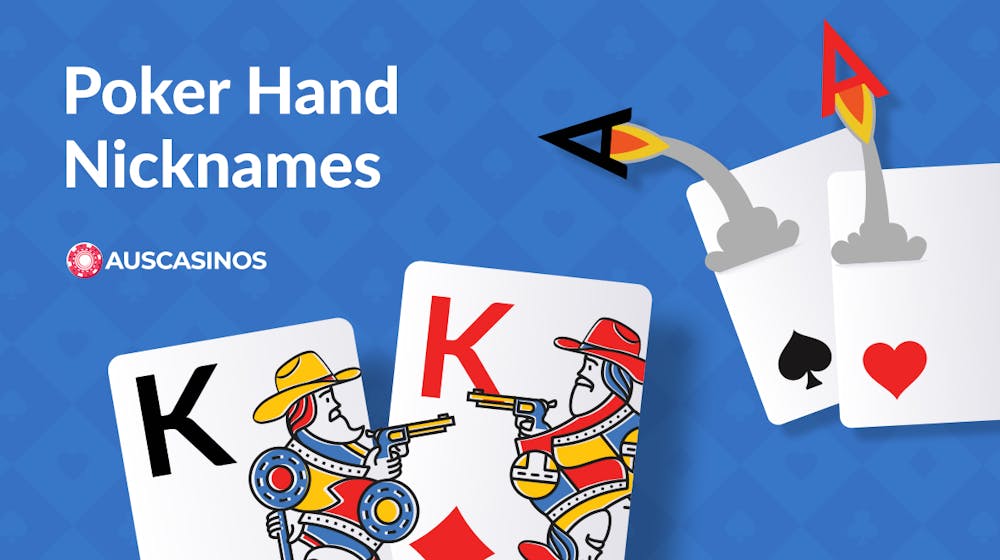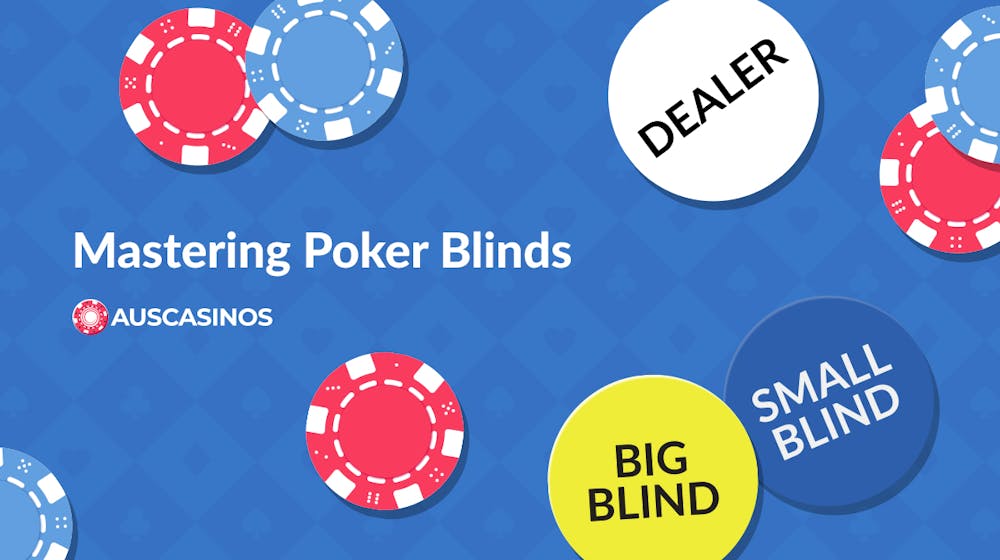Types of Poker: Find Your Perfect Game


Poker isn't just one game—it's a collection of variations, each offering a unique challenge and level of excitement. Whether you're a seasoned player or just starting, knowing the differences between poker types can help you find your ideal game.
Poker has many flavors, from Texas Hold'em to Seven Card Stud. In this guide, we'll discuss the most popular types of poker and explain their rules, strategies, and unique characteristics.
By understanding the nuances of each variation, you'll be better equipped to choose the game that suits your style and skill level.
Texas Hold’em
Texas Hold em is the most popular poker game, dominating casual home games and high-stakes tournaments worldwide. Its popularity exploded in the early 2000s, fueled by televised poker events and online platforms. The game's appeal lies in its perfect balance of simplicity and depth—easy to learn yet challenging to master.
Texas Hold'em's community card structure creates dramatic moments and complex decision-making. Players must navigate the betting rounds while considering their private cards and the shared board.
This game has produced poker legends and continues to attract millions of players, from novices to professionals, all looking for the thrill of outplaying their opponents and claiming the pot. There are also a bunch of spin-offs, such as short deck poker.

Rules
- Each player is dealt two private cards (hole cards)
- Five community cards are dealt face-up in the middle of the table
- Players form the best possible five-card hand using any combination of their hole cards and the community cards
- Betting rounds occur after the hole cards are dealt, after the first three community cards (the flop), after the fourth community card (the turn), and after the final community card (the river)
Why Play It
Texas Hold’em rules are simple to learn but offer a level of strategy that keeps players engaged. Its widespread popularity means you can easily find games online or in person.
The blend of skill and luck creates a dynamic environment where every hand presents new opportunities for tactical play and excitement.
Key Features
- Community card poker format creates shared information, leading to complex decision-making.
- The ability to play with just two cards makes it accessible for beginners
- Large tournaments like the World Series of Poker use Texas Hold'em as their main event
Texas Hold'em's balance of luck and skill makes it appealing to many punters. The excitement of creating a strong hand with the community cards or successfully bluffing your opponents keeps players returning for more.
Omaha Hold’em
Omaha Hold'em, often called Omaha or Omaha hi-lo, has rapidly gained popularity as a thrilling alternative to Texas Hold'em.
This alternative cranks up the action by dealing four-hole cards to each player instead of two, dramatically increasing the potential for big hands and wild swings. Omaha is known for its complex decision-making and explosive gameplay, often resulting in larger pots and more frequent all-in confrontations.
While the community card structure mirrors Texas Hold'em, the requirement to use exactly two-hole cards adds a layer of strategic depth that many players find irresistible.
Rules
- Each player receives four hole cards instead of two
- Five community cards are dealt face-up, similar to Texas Hold'em
- Players must use exactly two of their hole cards and three community cards to make their best five-card hand
- Betting rounds follow the same structure as Texas Hold'em
Why Play It
Omaha Hold'em provides a thrilling experience with its extra hole cards, leading to more action and larger pots. The game's complexity encourages strategic thinking and deeper decision-making, making it ideal for players who enjoy working out probabilities and hand strengths.
Difference between Omaha and Texas Hold’em.
- More hole cards mean more possible hand combinations.
- The requirement to use exactly two-hole cards often leads to surprising outcomes.
- Draws are more common, resulting in larger pots and more action.
Strategic Options
- Starting hand selection is crucial, as players often need stronger holdings to win.
- The "rule of 9" for calculating outs is more important in Omaha due to the increased number of draws.
- Bluffing can be riskier, as opponents are more likely to have solid hands or draws
Omaha poker strategy differs significantly from Texas Hold'em. The extra cards create more possibilities, making hand reading and pot odds calculations more difficult.
Seven Card Stud
Before Texas Hold'em rose to prominence, Seven Card Stud poker was the go-to game in many casinos and home games. This classic poker game is played without community cards, making each player's hand unique and reliant on their own dealt cards.
In Seven Card Stud, players receive seven cards throughout the hand—three face down and four face up—creating opportunities for strategic play based on visible information. Playing without community cards means players must rely on memory and observation skills to determine their opponents' potential hands.

Rules
- Players are dealt seven cards throughout the hand—three face down, four face up.
- The game starts with two cards face down and one face up (Third Street)
- Betting rounds occur after the third, fourth, fifth, and sixth cards are dealt
- The final card (Seventh Street) is dealt face-down
- The best five-card hand wins
Why Play It
Seven Card Stud is perfect for players who appreciate a slower-paced game that rewards patience and skilful observation. The absence of community cards allows for unique hand-building strategies, emphasising memory and deduction. This classic variant appeals to those who enjoy a more intelligent approach to poker, where every decision counts.
Key Features
- No community cards—each player's hand is unique
- Exposed cards provide information about potential hands
- Memory skills are crucial for tracking folded cards and assessing odds
Strategy Tips
- Starting hand selection is vital—look for live cards (cards that improve your hand and haven't been seen in opponents' up-cards)
- Pay close attention to opponents' exposed cards to gauge the strength of your hand.
- Position is less important than in community card games, but acting last on later streets is still advantageous.
Seven Card Stud offers a different pace and style of play compared to community card games. Its focus on memory and observation makes it a favourite among players who enjoy a more thoughtful poker game.
Five Card Draw
Five-card draw Poker is one of the game's earliest and most straightforward variants in poker history. It is often the first poker game many people learn, and it's easy, making it ideal for casual home games and introducing new players to the poker world.
Despite its basic structure, the game offers surprising depth. Players must decide which cards to keep or replace and how to bet their hands strategically. The draw phase adds suspense and possibility, as a mediocre starting hand can transform into a powerhouse with the correct replacement cards.

Rules
- Players are dealt five cards face-down.
- After the first round of betting, players can discard and draw new cards to improve their hand
- Players can discard up to three cards (or four if holding an ace)
- A final round of betting occurs after the draw
- The best five-card hand wins
Why Play It
Five-card draw is an excellent choice for beginners or casual players because of its straightforward rules and entertaining gameplay.
The draw phase adds an exciting twist, allowing players to improve their hands strategically. Its simplicity makes it easygoing while providing opportunities for bluffing and tactical play among friends.
Key Features
- No community cards—each player's hand is entirely their own
- The draw round allows players to improve their hands
- Bluffing can be particularly effective due to the limited information available
Strategy Considerations
- Initial hand selection is crucial, as you only get one chance to improve your hand.
- Pay attention to the number of cards your opponents draw—it can give clues about their hand strength.
- Bluffing with a strong draw (four to a flush or straight) can be effective
Five-card Draw games are often played casually at home, and their simplicity makes them an excellent choice for introducing new players to poker. Although they are not as strategically deep as some other variants, they offer plenty of skilful play and bluffing opportunities.
Razz
Razz is a unique lowball poker game where players aim to create the lowest possible five-card hand from seven cards dealt throughout the hand. Unlike traditional high-hand poker games, where players compete to form the strongest combination, Razz challenges players to think differently about hand values—aces are low, and straights or flushes do not count against you.
The objective is to achieve the best low hand possible; for example, A-2-3-4-5 is considered "the wheel" or "the bicycle," the highest possible low hand in Razz.
This twist on standard poker rules makes Razz a refreshing change for players seeking a new challenge while still enjoying elements of strategy and skill.

Rules
- Players aim to make the lowest possible five-card hand out of seven cards dealt.
- Aces are always low, and straights and flushes don't count against you
- The best possible hand is A-2-3-4-5, known as "the wheel" or "the bicycle"
- The betting structure is similar to Seven Card Stud, with five betting rounds
Why Play It
Razz poker rules offer a refreshing twist on traditional poker by focusing on creating the lowest possible hand. This unique objective challenges players to rethink their strategies and hand values, making it ideal for those looking for something different. The game’s lowball format adds an intriguing layer of complexity and excitement to poker nights.
Key Features
- It’s a low-hand poker game, meaning the lowest hand wins, which can be counterintuitive for players used to high-hand games.
- No community cards—each player receives seven cards throughout the hand
- Exposed cards provide information about potential hands, similar to Seven Card Stud
Strategy Tips
- Look for low cards in your starting hand and your opponents' exposed cards
- Pay attention to which low cards have been folded, as this affects the potential strength of your hand
- Be cautious with medium-strength low hands, as they can often be beaten
Razz offers a unique challenge for poker players, requiring them to adjust their thinking about hand values. Its inclusion in mixed games like H.O.R.S.E. has helped maintain its popularity among serious poker players.
Summary
Poker is a game of endless variety, and there's a version for everyone, whether you enjoy the high pace of Texas Hold'em or the slower, more strategic Razz. Try a few types to determine which fits your playing style best.
Remember, each variation offers challenges and rewards, so don't be afraid to step out of your comfort zone and explore different poker games. With practice and patience, you'll discover the poker variant that genuinely speaks to your skills and preferences.
Ready to try out these poker variations? Check out our online poker page to start playing today!
Types of Poker FAQ

Emily is our seasoned content writer. She writes easy to read and helpful game guides, so you can quickly understand the rules of each game and get some useful tips that can help boost your chances of winning.
Read more about the author





